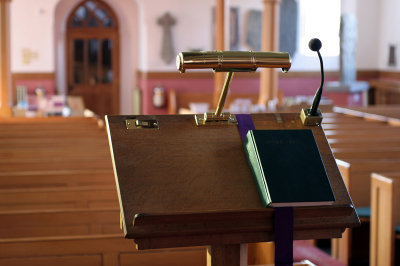5 reasons why large churches are having difficulty finding millennial pastors

Attention church members of congregations with an average attendance of 400 or more: If you are happy with your current pastors, hold on to them. You will have a challenge finding the successor to your pastor, especially if you want them to be 35 to 45 years old and with at least 10 years of lead pastor experience.
Church Answers has been following the impending pastor shortage crisis for a few years. We are ready to remove the word “impending” since we hear from churches every week that can’t find a pastor.
The crisis is particularly acute for larger churches seeking a Millennial pastor, that generation born between 1980 and 2000. We could include younger Gen X pastors born between 1975 and 1979 in this group. There are clear reasons why larger churches feel like there is a shortage of these pastors. Here are the five top reasons.
The five reasons
These reasons are listed in order of frequency stated by Millennial pastors except for number two, which is a demographic reality. Though our information is anecdotal, we believe we’ve heard it enough times to be accurate.
1. Bigger is not better. For decades, pastors typically moved from smaller churches to larger churches. Many smaller churches perceived their role was to prepare the pastor for the next step, much like the next step in educational attainment. However, most Millennial pastors do not view a bigger church as the next natural step. Many of these pastors feel like the smaller church where they are serving represents the future of churches in America. They are correct in their perception.
2. Boomer pastors are retiring and dying, and there are insufficient replacements available. It’s a two-edged sword. One part of the problem is that many Boomers (born between 1946 and 1964) are leaving their churches within a short period. There are simply not enough Millennial and younger Gen X pastors to replace them. The oldest Boomers are 78 years old. Even those hanging on past 65 years old are ready to step down.
3. Millennial pastors feel like they are serving both a church and a community. Their sense of call is first for the church they are serving but also for the community where the church is located. Pastors who feel a powerful call to their communities are much less likely to move to another church.
4. Facility issues are a big concern. Many churches have worrisome levels of deferred maintenance. Some also have worship centers that are not even half full. Millennial and younger Gen X pastors are seasoned leaders. They know that they might spend a considerable amount of their ministry time dealing with facilities, fundraising, and debt.
5. It costs too much to relocate. The pastor said these words emphatically: “I can’t put my family through the financial pressure of relocating. Even though the prospective church has offered me a 20% increase in salary from my current church, it still does not cover higher house prices and mortgage rates of around 7%.” And lest you judge these pastors to lack faith or be money-focused, most are seriously concerned that their decision would be one of poor stewardship.
Addressing the challenge
There are no simple or incremental solutions to the challenges. Our team at Church Answers gets more inquiries from search committees or their equivalent than we ever have. Typically, the conversation begins with, “We can’t find a pastor.”
Thus far, we’ve worked with these search committees to rethink personnel alignment, to look in an atypical pool of candidates, and to seek ways to find candidates within their own communities. We see a lot of challenges, but we don’t have cookie-cutter solutions. It is indeed a challenge, but it affords new opportunities and new ways of looking at how we “do church.”
In an upcoming article, we will address why smaller churches also have trouble finding pastors. The stated problem is similar, but the likely solutions are very different. Stay tuned.
Originally published at Church Answers.
Thom S. Rainer is the founder and CEO of Church Answers, an online community and resource for church leaders. Prior to founding Church Answers, Rainer served as president and CEO of LifeWay Christian Resources.
Rainer has written over 30 books, including three that reached number one bestseller: I Am a Church Member, Autopsy of a Deceased Church, and Simple Church. His new book, The Post-Quarantine Church: Six Urgent Challenges and Opportunities That Will Determine the Future of Your Congregation, is available now.



























